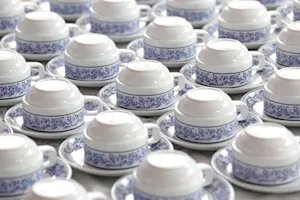What Makes This Word Tick
The word "inveterate" is a fancy way of saying "habitual" or "deeply ingrained." It refers to something that's been established over a long period, usually a habit or practice. So, an inveterate traveler wouldn't be just globetrotting on a whim—it’s more like they're married to their suitcase.
If Inveterate Were a Person…
If Inveterate were a person, they'd be that older gentleman who has started every single day with a cup of black coffee and the crossword puzzle for the past 50 years. He's set in his ways, reliably showing up at the same café every morning—come rain or shine.
How This Word Has Changed Over Time
Originally from the Latin "inveteratus," which means "made old," the word hasn't aged itself out of style. It's still just as handy when you want to talk about habits that aren't going anywhere soon. Like many inveterate habits, the word has stuck around in much the same form since it first appeared in English in the 14th century.
Old Sayings and Proverbs That Use Inveterate
There aren't many old chestnuts specifically using "inveterate," perhaps because, by nature, the word itself is something of a proverb—denoting practices that are as old as time. But you could say it ties into the adage "old habits die hard."
Surprising Facts About Inveterate
Did you know that "inveterate" can sometimes carry a negative connotation? We often use it to describe vices or less-than-ideal habits, like an "inveterate gambler." It's not something you'd want on a résumé, unless you’re gunning for a career in habitual behavior analysis!
Out and About With This Word
Look around in any cozy book club or local knitting circle, and you can bet there are some inveterate members. These groups thrive on routine, and while trends come and go, their commitment remains rock solid—much like the word itself.
Pop Culture Moments Where Inveterate Was Used
While inveterate might not headline a blockbuster, it's the perfect script filler for describing a character with strong habitual traits. Think of the compulsive detectives in crime series or that classic TV trope of the cranky old neighbor.
The Word in Literature
You might encounter inveterate describing characters in classic literature who are set in their ways, perhaps of Austen-esque persuasion. Its presence helps underline the stubbornness or steadfastness of a character’s routine.
Moments in History with Inveterate
Imagine inveterate at the signing of the Magna Carta—though not there in ink, its spirit was present among the deeply ingrained traditional practices that document sought to reform. Or think of Edison, an inveterate experimenter if there ever was one, tirelessly working away in his lab.
This Word Around the World
While "inveterate" is uniquely English, in French, you might hear "invétéré," and in Italian, "inveterato." They all carry that same sense of longstanding habits, just rolling off the tongue in slightly different ways.
Where Does It Come From?
Rooted in Latin, "inveteratus" means "old," and it traces back through French before comfortably settling into the English lexicon. It’s been a loyal friend to English speakers for hundreds of years, proving its own nature by sticking around.
How People Misuse This Word
People sometimes use "inveterate" to mean "intense" or "a lot.” But intensity isn’t the idea—longevity and tradition are! Being an inveterate tea drinker doesn't mean consuming gallons in one sitting; it means sipping steadily over decades.
Words It’s Often Confused With
Habitual: While similar, habitual refers simply to something done regularly, without the nuance of long-standing tradition.
Chronic: This leans more toward a negative persistence of something, especially diseases, rather than habits.
Fixed: This word implies permanence but lacks the history and depth "inveterate" carries.
Additional Synonyms and Antonyms
Synonyms include "confirmed," "ingrained," and "entrenched." On the flip side, antonyms would be "occasional," "sporadic," and "infrequent."
Want to Try It Out in a Sentence?
Just imagine describing someone as "an inveterate reader"—one who always has a book at hand, ready to dive into the pages. There's a comforting certainty in the word, much like those well-worn bookmarks marking the path through countless stories.
















